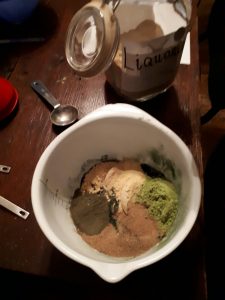Cancer treatment can be physically and emotionally challenging, but alongside conventional approaches like chemotherapy, radiation, and surgery, natural healing methods can support the body, reduce side effects, and improve overall well-being. A holistic approach focuses on cleansing, immune strengthening, inflammation reduction, and emotional well-being to help the body recover and maintain strength.
1. Supporting the Immune System
Conventional cancer treatments can suppress the immune system, making the body more vulnerable to infections and fatigue. Strengthening immune function naturally can help the body cope better during treatment and improve resilience afterward.
- Nutrient-dense foods rich in vitamins C, D, and zinc support immune health.
- Hydration is essential for keeping the body’s detox pathways open and flushing out toxins.
- Adequate rest and sleep allow the body to repair and regenerate immune cells.
2. Reducing Side Effects of Chemotherapy & Radiation
Natural methods can help the body cope with the common side effects of conventional treatments:
- Nausea relief – Small, frequent meals and gentle movement can help.
- Mouth sores and digestive discomfort – Eating soft, soothing foods and avoiding irritants like sugar and processed foods can ease symptoms.
- Fatigue support – Balancing activity with rest, gentle stretching, and nourishing meals help maintain energy.
- Skin care – Keeping the skin moisturised and using natural, gentle ingredients helps prevent dryness from radiation therapy.
3. Detoxification & Liver Support
The liver plays a crucial role in processing medications and eliminating toxins. Keeping it strong ensures that the body can effectively clear out unwanted substances.
- Drinking plenty of water helps flush out toxins.
- Eating whole, unprocessed foods supports liver function.
- Gentle movement and sweating (through light exercise or sauna use) assist the body in eliminating toxins naturally.
4. Managing Inflammation & Pain
Cancer and its treatments can lead to inflammation and pain. Supporting the body’s ability to manage inflammation naturally can improve comfort and mobility.
- An anti-inflammatory diet that includes fresh fruits, vegetables, healthy fats, and lean proteins helps reduce inflammation.
- Gentle movement like yoga or tai chi improves circulation and flexibility, reducing pain and stiffness.
- Breathwork and relaxation techniques help calm the nervous system and ease discomfort.
5. Digestive Health & Nutrient Absorption
Many cancer treatments affect the digestive system, leading to nausea, constipation, or loss of appetite. Supporting digestion ensures better nutrient absorption and overall well-being.
- Eating small, frequent meals prevents nausea and stabilises blood sugar.
- Including fibre-rich foods supports digestion and regular bowel movements.
- Reducing processed foods and artificial additives eases the burden on the gut.
6. Emotional & Mental Well-Being
A cancer diagnosis can bring anxiety, stress, and emotional challenges. Addressing mental and emotional health is just as important as physical healing.
- Mindfulness, meditation, and breathing exercises reduce stress and promote a sense of calm.
- Spending time in nature helps restore balance and perspective.
- Journaling or creative expression can provide emotional relief.
- Connecting with a support network (friends, family, or support groups) reduces feelings of isolation.
7. Strengthening the Body Post-Treatment
After completing conventional treatment, rebuilding strength is essential for long-term health.
- Nourishing meals packed with essential nutrients help the body recover.
- Regular, gentle movement restores energy and flexibility.
- Deep, restful sleep supports healing and cellular repair.
- Focusing on emotional healing and positive mindset shifts helps with recovery and long-term well-being.
8. A Holistic, Individualised Approach
Everyone’s body and cancer journey are unique. A personalised approach that includes cleansing, immune support, detoxification, and emotional healing can improve overall health while working alongside conventional treatments.
Get in touch with Sarah by completing the enquiry form if you would like more information.
















